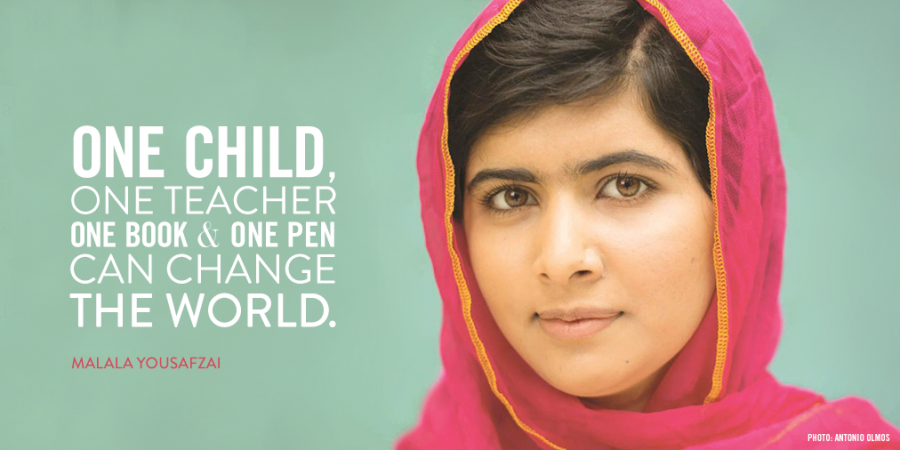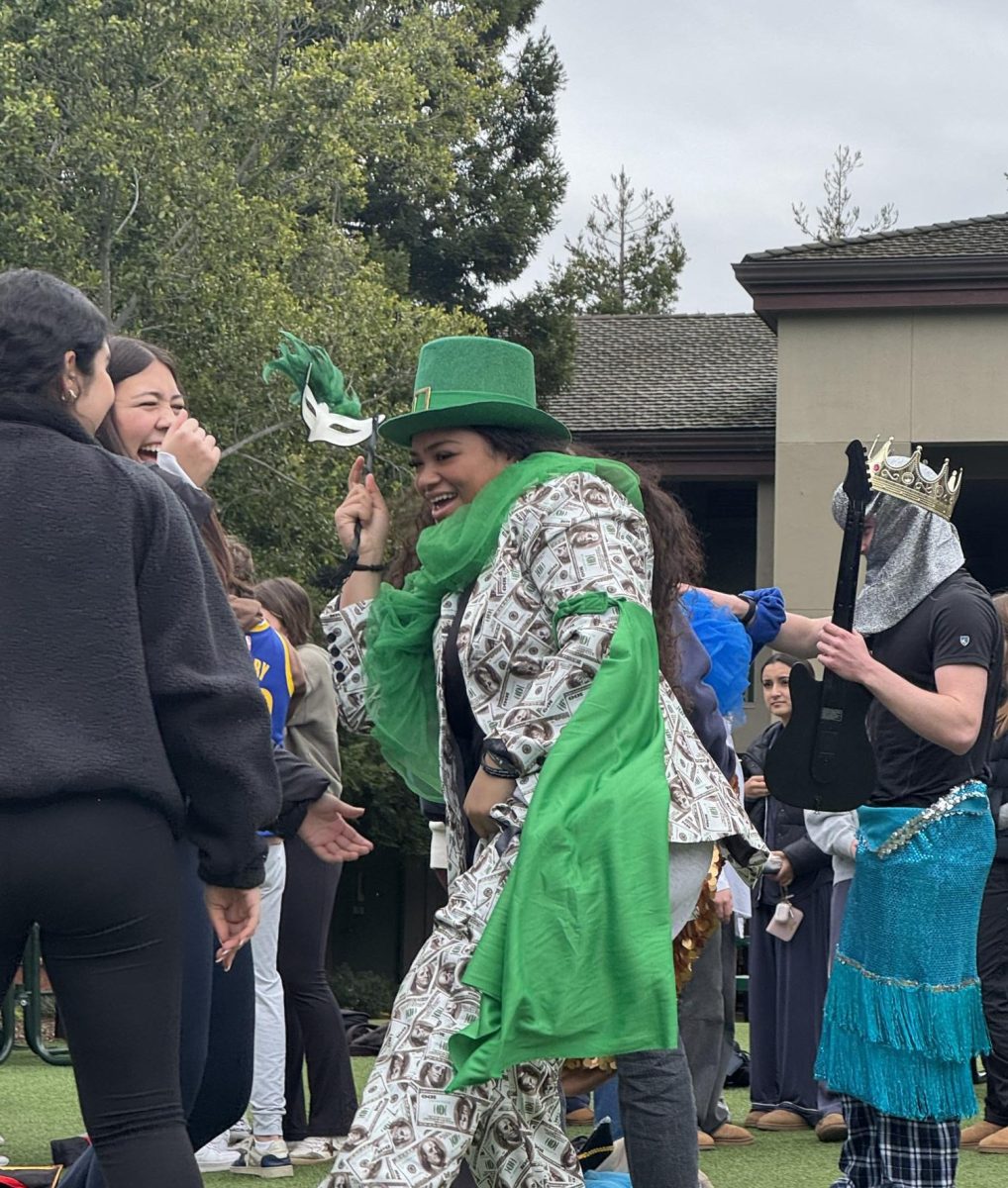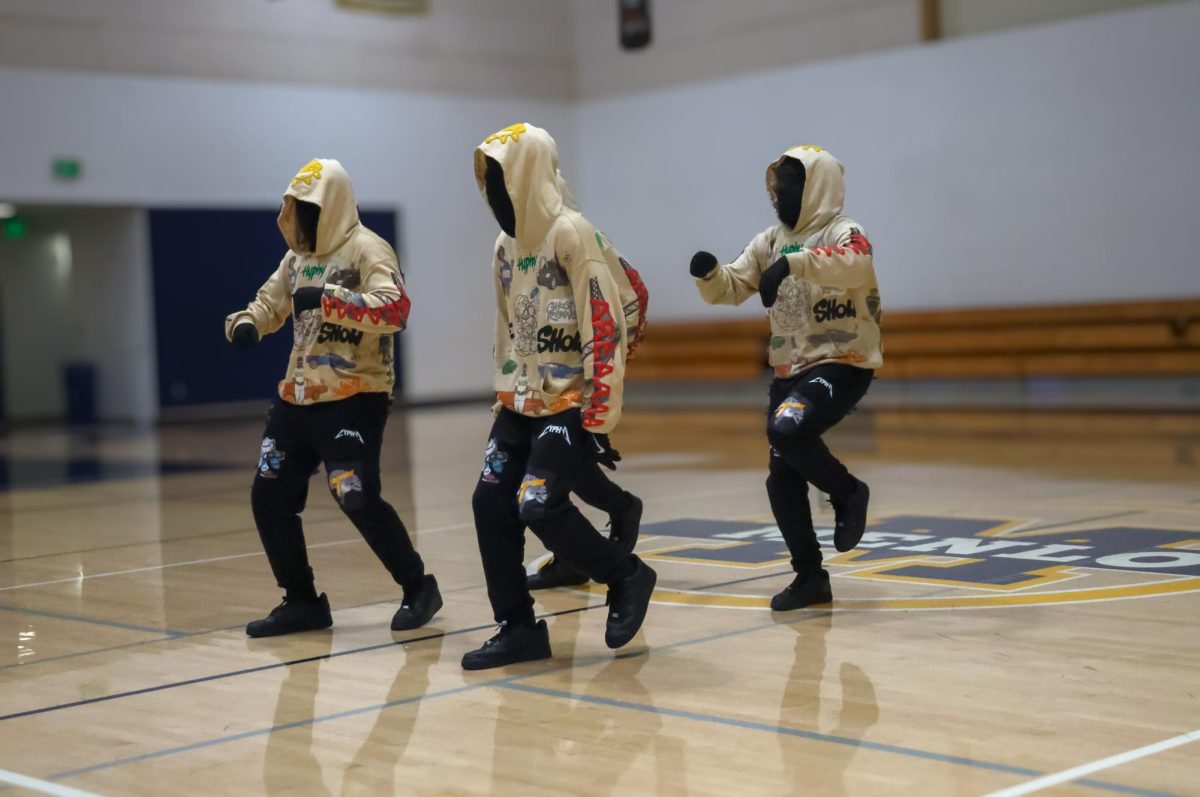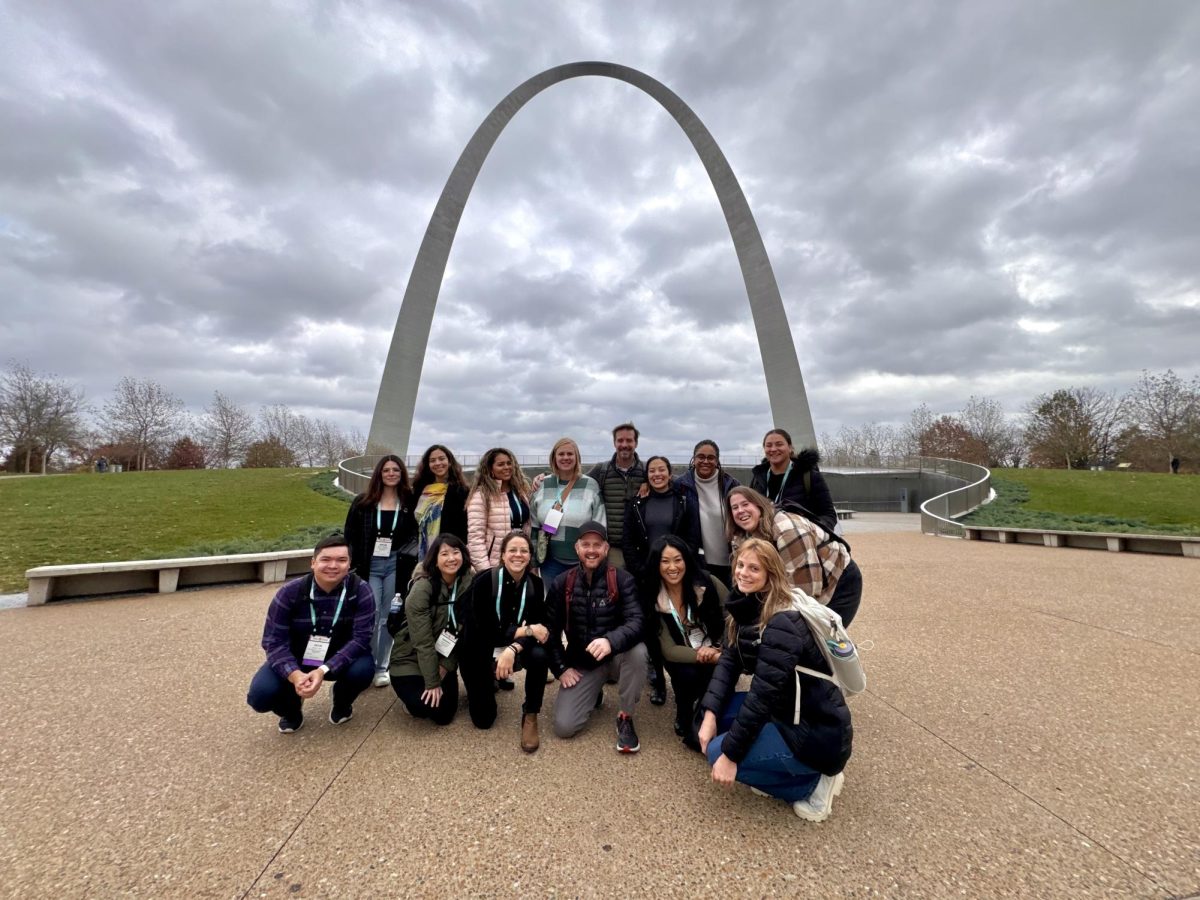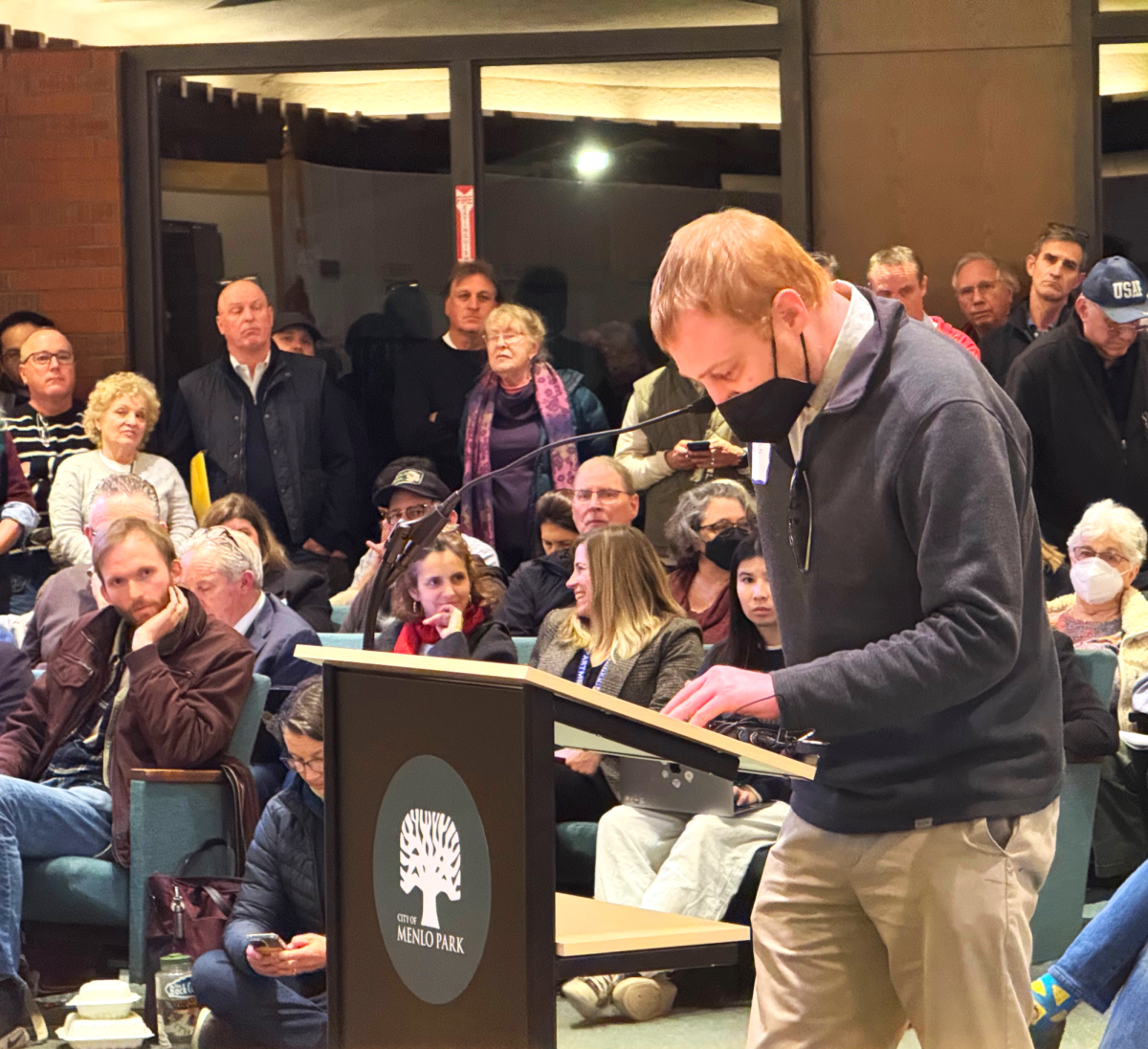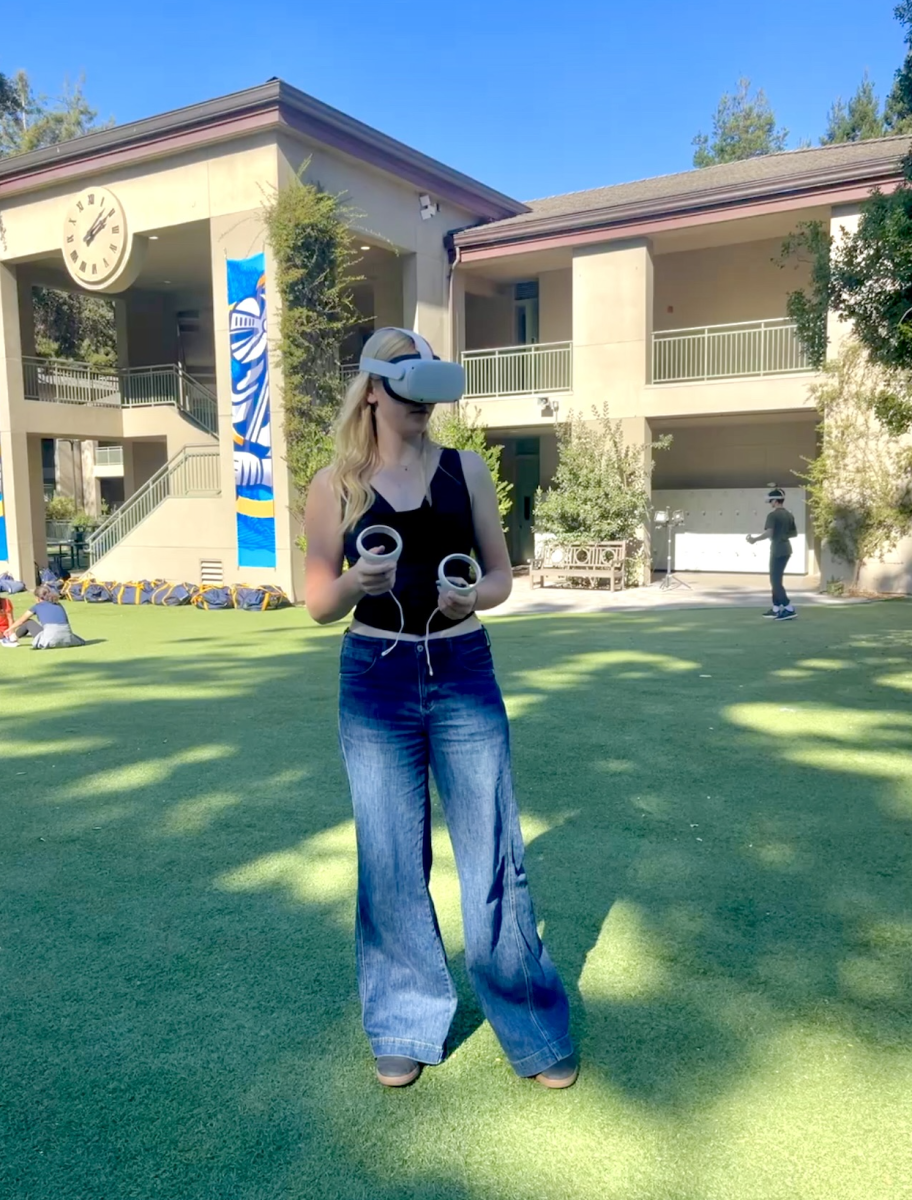What did Malala Yousafzai do for her 18th birthday? She launched a secondary school for Syrian refugee girls in Lebanon. The youngest Noble Peace Laureate and Pakistani activist for education lives and breathes her mission: get every school-age kid into school. Creative Commons image.
Denna Nazem | Design Editor
Currently there are 67 million kids out of school. One of the main reasons for this is war and conflict. One out of every 122 people in the world is a refugee, internally displaced or trying to get asylum in another country. United Nations High Commission for Refugees reports that the number of refugees has increased to almost 60 million, up eight million in just one year. Her location of choice, Lebanon, is home to two million refugees. With a total population of just four million, there is a dire need for schools. One of the key contributing factors is the Syrian war, which produced some 42,500 refugees every day last year. When kids are displaced, their education suffers and when this happens for a prolonged period of time, then their entire life suffers.
Another reason kids are not at school is poverty. Education is not free around the world and often only the rich can afford to pay for education or to bribe teachers to give their kids a quality education. In many parts of the world, kids don’t go to school because they have to work to support their families or take care of their siblings. According to Malala Fund’s website, girls face violence for merely wanting to go to school in 70 countries. Lack of education is mot just an issue in underdeveloped nations. Almost 5,000 kids in San Francisco are chronically or habitually truant each year. This is a worldwide problem and Malala, who was shot by Taliban for speaking out for girls’ education, is dedicating her life to make it unacceptable for kids to be out of school. “If I can do something, then you can do something too,” Malala recently said to Nigerian leaders referring to the 276 girls kidnapped by Boko Haram in April 2014.
Thanks to the generosity of a family friend, my family had the good fortune of meeting Malala last week. It was nice to see her on a human level, attending the talk with both of her parents and two brothers. Sitting only a foot away from her during the question and answer, I was blown away by how real and candid she was. Genuinely flattered by every complement she received and ready to answer each question posed, Malala became so relatable in my eyes. She was of course still the bravest fighter for woman’s education who stood up to the Taliban, got shot for it, and won the Nobel Peace Prize, but she was also just an unbelievably down to earth, 18-year-old girl who felt the same emotions we all did. “It was nice to win the Noble Prize, but the happiest moment for me was when I learned of my [exam] results last week, no B’s!!” she said.
Denna Nazem/COA.
She talked about her concerns about a “lost generation” of kids who are not in school, will have a hard time to find jobs, and as a result not be able to break out of the cycle of poverty and oppression. She talked about missing her home and friends in Swat Valley and the beauty and serenity of the mountains and rivers that surround it. She said after she was shot, she had a choice: stay and face more violence for herself and people around her or leave to give voice to the millions of girls our there who don’t have a voice. She chose to go abroad and amplify their voices. Her story, the Noble Prize, the MalalaFund have all amplified her voice for girls’ education. Now she has an amazing new documentary coming out: “He Named Me Malala”.
Denna Nazem/COA.
For her birthday, she didn’t make a wish, she made change. She needs our help to get her message out: #BooksNotBullets. Watch her trailer, spread the word to your families and communities, donate and get others to donate, so people all over theworld can watch the film for free. Just as the movie Selma was shown for free in the U.S., her dream is that He Named Me Malala is shown free all over the world. Change the world with Malala.
“When you look at the statistics, 66 million girls are deprived of education. And people say, ‘Oh you have received the Nobel Peace Price, spoke at the UN, met all the world leaders, what else do you want?!’ and I say, ‘You’re forgetting the very big thing I want, and that is every child in school.’ I haven’t done that yet and we are waiting for that moment when we can say, ‘No child is out of school.’”
– Malala Yousafzai, 2015


